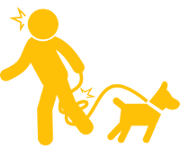 | Welcome to the 7th International Workshop on Aliasing, Capabilities and Ownership |
The power of objects lies in the flexibility of their interconnection structure. But this flexibility comes at a cost. Because an object can be modified via any alias, object-oriented programs are hard to understand, maintain, and analyse. Aliasing makes objects depend on their environment in unpredictable ways, breaking the encapsulation necessary for reliable software components, making it difficult to reason about and optimise programs, obscuring the interactions between objects, and introducing security problems.
Aliasing is a fundamental difficulty, but we accept its presence. Instead we seek techniques for describing, reasoning about, restricting, analysing, and preventing the connections between objects and/or the interactions between them. Promising approaches to these problems are based on ownership, capabilities, separation logic, uniqueness, sharing control, escape analysis, argument independence, read-only references, effects systems, and access control mechanisms.
Accepted Papers
Call for Papers
7th IWACO International Workshop on Aliasing, Capabilities and Ownership (IWACO)
Co-located with ECOOP
July 18 (tbc), 2016, Rome, Italy
Reasoning about shared state in imperative programs is challenging. The existence of aliases, in particular, compromises modular reasoning, making imperative programs hard to understand, maintain, and analyze. These difficulties become even aggravated in a concurrent context. On the other hand, aliasing is a very powerful feature and allows for efficient implementations of data structures, for example.
To address those challenges, techniques have been introduced for describing and reasoning about stateful programs and for restricting, analyzing, and preventing aliases. Approaches are based on ownership, capabilities, separation logic, linear logic, uniqueness, sharing control, escape analysis, argument independence, read-only references, linear references, effects systems, and access control mechanisms.
The workshop will generally address the question how to reason about stateful (sequential or concurrent) programs. In particular, we will consider the following issues (among others): models, type and other formal systems, programming language mechanisms, analysis and design techniques, patterns and notations for expressing ownership, aliasing, capabilities, uniqueness, and related topics; optimization techniques, analysis algorithms, libraries, applications, and novel approaches exploiting ownership, aliasing, capabilities, uniqueness, and related topics; empirical studies of programs or experience reports from programming systems designed with these issues in mind; programming logics that deal with aliasing and/or shared state, or use ownership, capabilities or resourcing; applications of any of these techniques to a concurrent setting.
We encourage not only submissions presenting original research results, but also papers that attempt to establish links between different approaches and/or papers that include survey material. Original research results should be clearly described. Paper selection will be based on the quality of the submitted material. Please direct any questions regarding the workshop’s scope to the workshop organizer.
Papers in the ACM 2-column style are welcome with a minimum length of 2 pages. All submissions will be reviewed by the program committee. The accepted papers, after rework by the authors, will be made publicly available as informal proceedings on the workshop web page.
For the submission, please use the HotCRP/EasyChair system: https://easychair.org/conferences/?conf=iwaco2016
Important Dates
• Paper submission: April 22nd, 2016
• Notification: May 20th, 2016
• All deadlines: Anywhere on Earth (AoE), i.e., GMT/UTC−12:00 hour
Programming Committee
Paley Li, Northeastern University (organizer)
Alexander Summers, ETH Zurich
Sylvan Clebsch, Imperial College London
Tobias Wrigstad, Uppsala University
Marieke Huisman, University of Twente
Hridesh Rajan, Iowa State University
Bart Jacobs, KU Leuven
Felix Klock, Mozilla Corporation
Colin Gordon, Drexel University
Marwan Abi-Antoun, Wayne State University
Mon 18 JulDisplayed time zone: Amsterdam, Berlin, Bern, Rome, Stockholm, Vienna change
13:50 - 15:20 | |||
13:50 30mTalk | Frozen Realms: Confining effects for safer JavaScript plugins IWACO Mark Miller Google Inc. | ||
14:20 30m | Towards Enabling Low-Level Memory Optimisations at the High-Level with Ownership Annotations IWACO Juliana Franco Imperial College London, Tobias Wrigstad Uppsala University, Sophia Drossopoulou Imperial College London Pre-print | ||
14:50 30mTalk | Objects as Session-Typed Processes IWACO | ||
16:00 - 17:30 | |||
16:00 30mTalk | Are Ownership Types Reaching the World Yet? IWACO Patrick Lam University of Waterloo, Canada File Attached | ||
16:30 30m | Kappa: Insights, Current Status and Future Work IWACO Pre-print | ||
17:00 30m | Abstract Data Types in Object-Capability Systems IWACO James Noble Victoria University of Wellington, Sophia Drossopoulou Imperial College London, Mark Miller Google Inc., Toby Murray University of Melbourne, Alex Potanin Victoria University of Wellington Pre-print File Attached | ||
17:40 - 18:30 | |||
17:40 50m | Closing Discussions IWACO Paley Li Northeastern University | ||